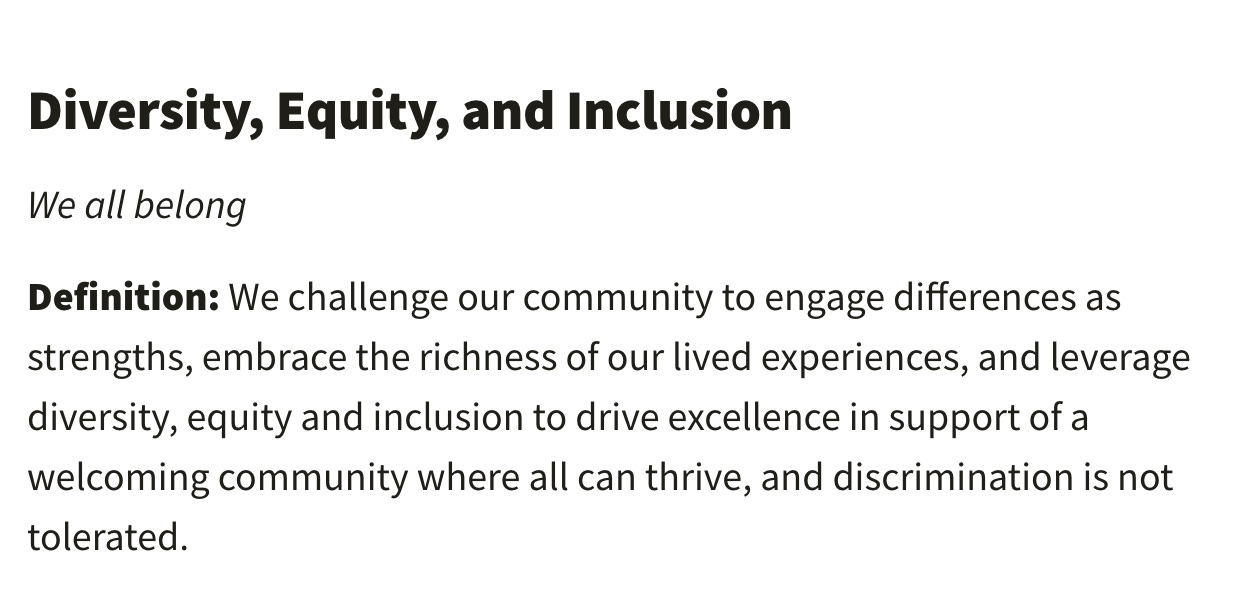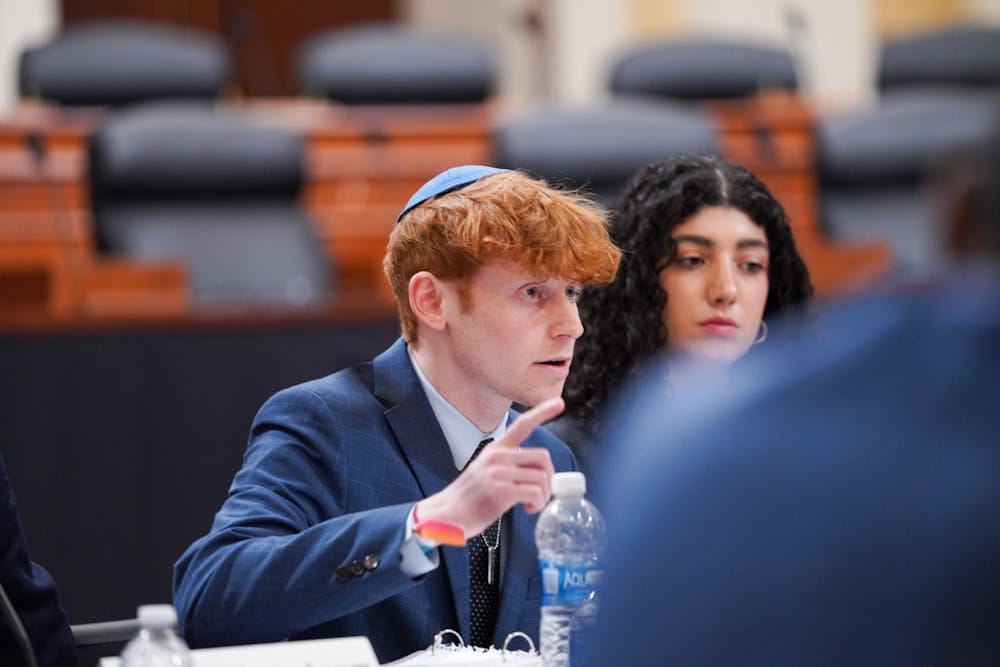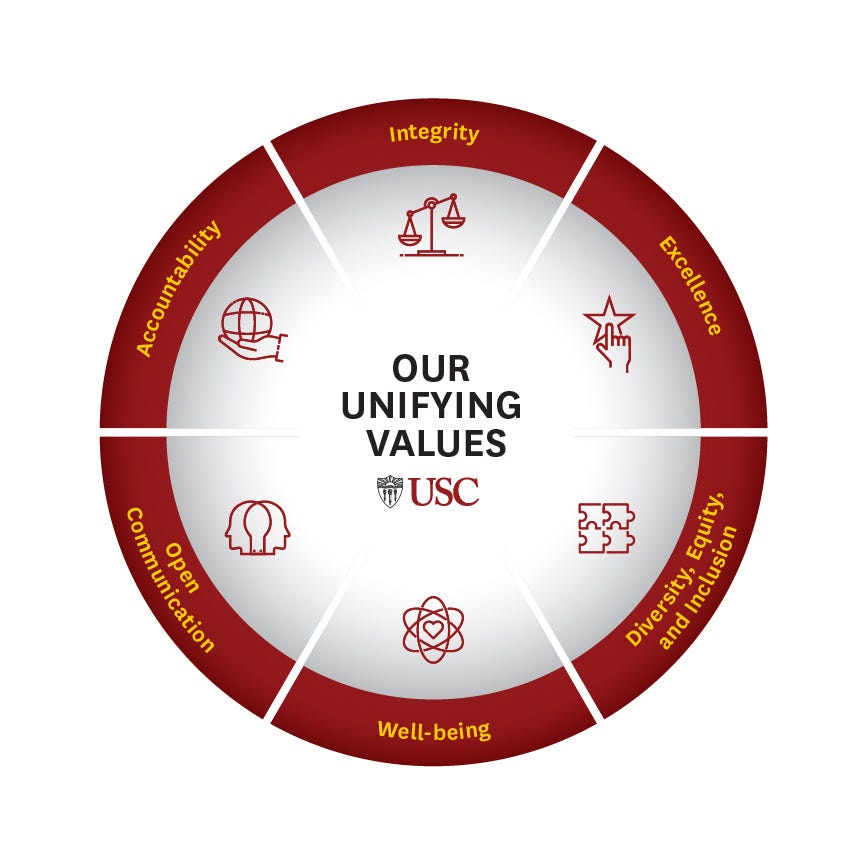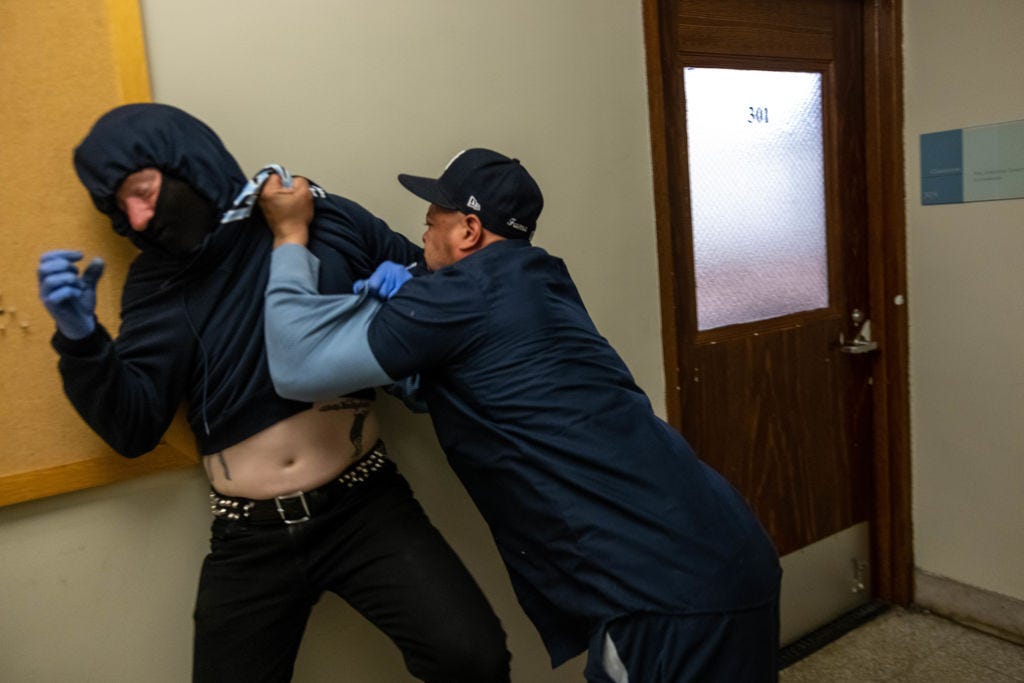Will Jewish Students Be Safe This Fall?
Writing for the Wall Street Journal, Jason Riley analyses the responses of university administrations to the virulent exhibitions of antisemitism that took place on campuses across the country (“Will Jewish Students Be Safe This Fall?,” July 16, 2024; read an archived version here).
The national discussion about antisemitism on college campuses that followed the Hamas terrorist attack in Israel last year was welcome and overdue. But as a Journal editorial in December warned, “it won’t amount to much if the only result is the resignation of a couple of university presidents.”
The presidents of the University of Pennsylvania and Harvard resigned, but old habits die hard. And it isn’t clear that Jewish students returning to campus in the fall will feel any safer than they did in the spring, when buildings were occupied, property was destroyed, classes were held remotely, and graduation ceremonies were canceled.
The outlook is not rosy. Riley documents the apparent inability of university leadership to act forcefully on the issue of antisemitism and anti-Zionism on campuses. Examples include caving in to the demands of radical faculty, letting violators go unpunished, and equivocation:
The Harvard Crimson wrote that it was at least the second time administrators caved in to pressure from student activists and sympathetic faculty members.
“The decision to drop the suspensions and ease charges against other disciplined students represents a dramatic reversal,” the Crimson explained. “It’s not the first time Harvard has flip-flopped in its attempts to take disciplinary and administrative actions against pro-Palestine protesters. The College initially placed 20 members of the encampment on involuntary leaves of absence before reinstating them just days later, after the occupation ended.” The editors said that by going easy on the student activists, “Harvard may have further emboldened pro-Palestine student groups ahead of the return to campus in September.”
At Columbia, where protesters called for Tel Aviv to be “burned to the ground” and said that “Zionists don’t deserve to live,” three deans were caught mocking Jewish students’ concerns about antisemitism on campus. In text messages with one another, the deans dismissed Jews as privileged, implied that their complaints were overblown, and suggested people on campus were exploiting wealthy Jewish donors. “Amazing what can do,” read one of the messages….
On too many elite campuses, little seems to have changed. Schools are making a show of addressing antisemitism, but they’re also equivocating. At Stanford University, anti-Israel students broke into the building that houses the offices of the president and provost. An instructor told students that “Israel is a colonizer” and tried to justify the Hamas attack. The school responded by announcing the formation of one task force to investigate antisemitism and another to investigate anti-Muslim sentiment on campus….
“Harvard’s task forces on antisemitism and anti-Muslim bias each found a climate of discrimination and harassment on campus,” according to the New York Times. The report concluded that “the situation for pro-Israel students was ‘dire’ and that pro-Palestinian students were being suppressed.” How convenient!
To this list we can add performative actions, such as establishing task forces and committees staffed by yes-men that “check a box” but achieve nothing of substance.
Riley also highlights the persistent double standards when it comes to freedom of speech:
The same higher-education elites who want to punish people on campus for using the wrong pronoun are quick to defend free speech in the service of political causes they support. But disrupting classes, threatening fellow students and calling for the genocide of Jews isn’t protected speech. It’s unlawful conduct, and it shouldn’t be indulged at our colleges and universities.
Indeed! The line between protected free speech and unacceptable disruptions is rather clear, as has been explained by several free speech advocates.
At USC, we are fed platitudes such as our “unifying values” and “culture journey” (see, for example, Heterodox at USC Newsletter #11), while no real action is taken against the persistent and pervasive antisemitism on campus (see also here). Our “Report on Campus Climate and Call for Action” proposed concrete steps; however, we have not seen any action. The Jewish Life Committee remains lifeless. This is hardly surprising, as it has no students or faculty. To repeat: not a single student, undergraduate or graduate, sits on the committee. As recommended by our report, in order to inject life into the committee, it must be restructured to include students and faculty members with a track record of openly fighting antisemitism and anti-Zionism:
A new and reorganized permanent Committee on Jewish Life should be formed with a focus on the participation of students and USC faculty committed to fighting antisemitism and anti-Zionism.
USC is not the only campus unprepared for the fall. Writing for the New York Post, Rikki Schlott—co-author of The Cancelling of the American Mind—raises concerns about Columbia (“Protesters Are Already Threatening Campus Disruption for Fall—and Schools Look Unprepared”):
As back-to-school season nears, students and faculty are preparing to return to campus—and to protests.
Pro-Palestinian protesters who wreaked havoc on Columbia University’s campus in the spring have already declared they “will be back.” The fall semester begins Sept. 3.
So what is Columbia doing about it? The big picture is unclear. But its initial strategy seems pretty thin.
In a July 24 email to students, faculty and staff, university president Minouche Shafik said her team is “working hard” on fostering community, clarifying rules and defining discrimination in anticipation of the fall semester.
“We truly flourish when we engage with different perspectives from a foundation rooted in mutual respect and a commitment to rigor and open inquiry,” Shafik said in the statement.
Adam Lehman, president and CEO of Hillel International, expressed similar concerns regarding the climate on campuses. According to the Cleveland Jewish News (“Hillel President, CEO Reflects, Looks to New School Year”, July 5, 2024)
“This past year, Jewish students faced truly unprecedented conditions on campus,” Adam Lehman, president and CEO of Hillel International, told the Cleveland Jewish News on June 20. “At Hillel International, we recorded more than 1,800 total incidences of campus antisemitism (in the United States).”
This total represented a 700% year-to-year increase, said Lehman… The incidents from the 2023-2024 school year included targeted harassment, intimidation, marginalization and in more than 65 cases, physical harassment and assault.
According to Lehman, Hillel responded to this surge of antisemitism with multiple actions and initiatives, ranging from providing security to Jewish students to advocating with the Department of Education. While Hillel’s actions are commendable, it is unacceptable that Jewish students do not receive protection and support from the universities themselves. Jews have no seat under the big tent of DEI—their space is off-campus, in the compounds of Hillel and Chabad.

The antisemitism on American university campuses is so widespread that, according to Lehman, there are no good choices for incoming students:
Both parents of Jewish students and the students themselves need to be “thoughtful consumers” in assessing the campus climate for the students, he said.
“We have seen issues on most campuses during this past remarkable year,” he said. “It becomes a fool’s errand to eliminate schools from consideration based just on the existence of issues that were truly endemic to higher education.”
Accountability? Or Lack Thereof?
Writing for the L.A. Times, Jaweed Kaleem and Monica Obradovic report on the consequences for the protesters (“Police Arrested Hundreds of Pro-Palestinian Students in L.A. The Fallout Continues,” August 2, 2024; archived version here). Given the scale of the disruptions, vandalism, and lawlessness, the number arrested nationwide—3,200—was quite small. The arrests were made after repeated pleas to disperse. Most of the protesters, including those engaging in vandalism and violence, were not detained. Only the most serious offenders were arrested. According to the L.A. Times, some of those arrested at UCLA campus were
in possession of metal poles, padlocks and a printed “do it yourself occupation guide.” [They] were arrested in a parking garage on suspicion of planning to overtake a campus building as part of the protests.
At the USC encampment, a “Student Intifada” manual was recovered. For a refresher on what the protests were like, check out the series of short videos of the UCLA protests produced (anonymously) by a member of the Circle (here, here, here, and here), and a longer video featured in this newsletter.
Unfortunately, it seems that there will be little to no consequence for the protestors. Most charges were dropped against the protestors at Columbia who occupied a building, caused property damage and assaulted a custodian (“Exclusive: Columbia Custodian Trapped by ‘Angry Mob’ Speaks Out,” The Free Press, May 6, 2024).
Although not all charges nationwide have been dropped, the meagerness of the responses has been mind-boggling, especially in view of the staggering financial costs incurred by the universities. According to the L.A. Times, some students at UCLA and USC are still under suspension. But given the gravity of their misbehavior, the universities should have expelled them by the dozens. Aside from ridding the universities of these hooligans, it would have sent the message to future would-be campus anarchists that civil disobedience comes with a price.
While clearing the encampment at USC, the LAPD arrested 93 people (51 of them students), who were cited for trespassing after failing to follow police orders to disperse. According to the L.A. Times,
Citing privacy, USC declined to disclose details of student conduct investigations. But about 180 faculty and staff members sent a letter to USC administrators last month calling proceedings by the USC Office of Community Expectations “aggressive” and demanding “reforms” and “greater transparently” around cases involving student protesters. Students who were arrested said they attended arraignments earlier this year, although no charges have been filed.
What can we say—radical faculty on our campus remain a ticking time bomb.
Lawsuits, Probes, and More
Although police and administrative responses to the protests have been meager, there is a lot going on nationwide in the courts and legislature. Below we highlight several interesting developments:
According to the L.A. Times (“Judge Orders UCLA, Jewish Students to Draft Plan for Equal Campus Access in Wake of Protests,” July 29, 2024; archived version here):
A federal judge Monday told UCLA and Jewish students who sued the university that they have one week to hash out a court-enforceable plan that would ensure equal access to campus for all if protests over the Israel-Hamas war or other disruptions erupt in the future.
The directive, issued during a hearing in downtown Los Angeles, followed a lawsuit three Jewish students filed last month against UCLA alleging that an April pro-Palestinian encampment violated their civil rights by illegally blocking them and other Jews from parts of campus, including the site of the camp, Royce Quad.
“Meet and confer to see if you can come up with some agreeable stipulated injunction or some other court order that would give both UCLA the flexibility it needs ... but also provide Jewish students on campus some reassurance that their free exercise rights are not going to play second fiddle to anything else,” said U.S. District Judge Mark C. Scarsi.
Both sides have until Monday to submit the plan. Scarsi said he would probably issue an injunction sometime next week.
The directive marks the first federal court intervention over UCLA’s encampment after a volatile spring of divisive pro-Palestinian protests. It comes as the University of California Regents and campus leaders have signaled that they will no longer tolerate encampments and will enforce rules pertaining to protests.
What about USC? Can our university develop a plan without a mandate from a judge?
Key settlements were reached in an investigation of Brown University by the Department of Education (“Dept. of Education Chides Brown University for Taking ‘No or Little Action’ in Response to Complaints of Antisemitism,” Jewish Telegraphic Agency, July 8, 2024) and a lawsuit filed by Jewish students against NYU (“N.Y.U. Settles Lawsuit by Students Who Claimed Antisemitic Harassment,” New York Times, July 9, 2024). Both alleged that the universities failed to protect Jewish students from a climate of hostility and pervasive antisemitism. As a result of the agreements, both schools will take definitive action to address antisemitism on their campuses.
What about USC? Can our university take definitive action without a lawsuit?
In contrast, the lawsuit filed by MIT students was dismissed. As the Babbling Beaver tells the story (“MIT Washes Its Antisemitism Hands”):
MIT’s high-priced lawyers successfully convinced a judge that the administration was shocked, shocked by the virulent antisemitism that roiled campus. What possible connection could there be between MIT’s extensive DEI indoctrination and demands by social justice activists that settler colonial Jews must turn over Israel “from the river to the sea” to peace-loving oppressed Palestinians?
A lawsuit claiming that the administration should not have let pro-Hamas protestors run wild for eight months, shredding the precious concept of “Belonging” for MIT’s Jewish students, was dismissed.

More testimonials continue to appear. Two Penn students, Benjamin Messafi and Noah Rubin, testified before a committee of the Pennsylvania Senate (“Penn Students, Administrator Testify at Pa. Senate Hearing on Campus Antisemitism,” The Daily Pennsylvanian, July 29, 2024):
“I am here today, scared and nervous,” Messafi said in his testimony. “I am anxious that, like the last, this upcoming academic year will bring more riots, encampments, and harassment of Jewish students.”
Messafi alleged that presence of the encampment on Penn’s campus led to 150 incidents of harassment and intimidation against Jewish students. He reported experiencing and witnessing antisemitic chants, imagery, and direct threats, including the glorification of terrorist organizations and calls for violence against Jews.
“Freedom of speech does not mean freedom to incite violence, call for the genocide of Jews, and blatantly violate university policy,” Messafi said. “And these acts of hate are not peaceful. There are other ways to protest the ongoing war than to declare war on your Jewish students who have zero involvement in an overseas conflict.”
What to Expect in the Next Academic Year?
As we wrote in our July 26 newsletter, the peace and quiet on the USC campus is fragile. While the administration shows no visible signs of action, antisemitic student organizations—SJP, BDS, Divest From Death, and USC SCALE—are gearing up for more misdeeds. The examples below from New York University and the University of Wisconsin foreshadow what is likely to come to USC.
At New York University, a pro-Hamas group has reiterated its support for political violence and terrorism, pledging to engage in the “armed struggle” (“Pro-Hamas Group at New York University Promotes ‘Armed Struggle’ in New Statement,” The Algemeiner, July 29, 2024):
“Decolonization and abolition are not metaphors. We uphold the right of any oppressed people to resist their oppression, by any means necessary,” the group, which calls itself NYU People’s Solidarity Coalition (NYU PSC), said in a “Statement of Intention.” “Resistance takes many forms, including armed struggle … As members of the NYU PSC, we will not condemn the brave actions of our allies nor will we limit ourselves to resistance through organizational means.”
…Pro-Hamas student groups on college campuses have been proclaiming support for violence against Israel — and in some cases against Jews — since they began staging anti-Zionist demonstrations after Hamas’ Oct. 7 massacre across southern Israel.
In May, a Students for Justice in Palestine (SJP) chapter at Columbia University endorsed Hamas, heralding the terrorist group as “the only force materially fighting back against” Israel. And then just weeks ago, Harvard Out of Occupied Palestine (HOOP) called its actions on campus an “intifada” and vowed to pick up next academic year where it left off the last — roiling the campus with illegal occupations of school property and harassing Jewish students who support Israel.
Earlier this month, a coalition of anti-Zionist groups at the University of Wisconsin, Milwaukee issued an open threat against pro-Israel Jewish students and organizations, promising to treat them as “extremist criminals.”
“We will no longer normalize genocidal extremists walking on our campus,” the group, which calls itself UWM Popular University for Palestine, posted on Instagram. “Any organization or entity that supports Israel is not welcome at UWM. This includes the local extremist groups such as Hillel, Jewish Federation, etc.”
At the University of Wisconsin-Milwaukee, a coalition of “anti-Zionist” groups has issued an open threat to Jews who support Israel and to Jewish organizations, promising to treat them as “extremist criminals.” (“Anti-Israel Coalition at University of Wisconsin-Milwaukee Issues Threat to Jewish Community,” The Algemeiner, July 29, 2024):
“We will no longer normalize genocidal extremists walking on our campus,” the group, which calls itself UWM Popular University for Palestine, posted on Instagram last week. “Any organization or entity that supports Israel is not welcome at UWM. This includes the local extremist groups such as Hillel, Jewish Federation, etc.”
Some Universities Are Taking Measures
Some universities are updating their policies regarding campus protests, but as the two examples below illustrate, these measures have been harshly criticized for potentially violating students’ constitutional rights. Whether or not this critique is valid remains to be seen.
“Indiana U. Joins the Ranks of Colleges Imposing New Limits on Protest” (Michael Vasquez, for the Chronicle of Higher Ed):
Indiana University at Bloomington’s Board of Trustees on Monday voted 6-3 to pass an expressive-activity policy that limits protests to certain hours of day, bans light projections on buildings without approval, and requires that protesters stay 25 feet away from the entrance to university buildings. The rules, which follow the release of an independent report that recommended a new policy, have been harshly criticized by some students and faculty who argue their constitutional right to protest is being unfairly curtailed….
The policy prohibits overnight protests, like the pro-Palestinian encampment that has been active on the campus’s Dunn Meadow for months, unless they are approved as part of a university event.
“How USF's Policy Changes Could Restrict How Students Gather on Campus” (Tyler Luginski, for WUSF):
Earlier this year, pro-Palestinian protests on the University of South Florida Tampa campus led to multiple arrests and academic consequences for students involved. Now, administrators are putting forth changes to school policy about how, when and why students can hold events—including protests—on campus.
Academic Engagement Network to Hold Listening Tours
The Academic Engagement Network will host listening tours offering faculty the opportunity to speak about their experiences with campus antisemitism over the past year and to let the organization know what support they need going forward. A California session will take place on Friday, August 30. More information and registration link here.








It’s not looking good for the fall.